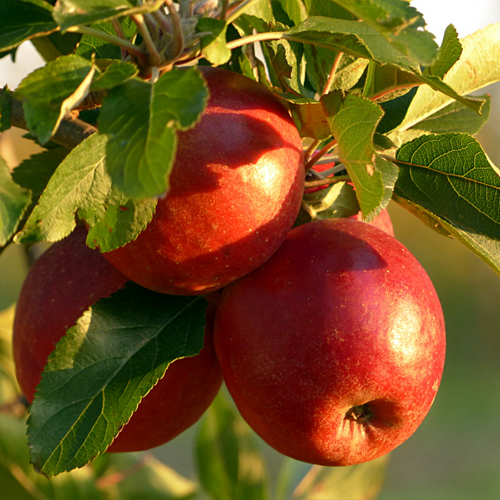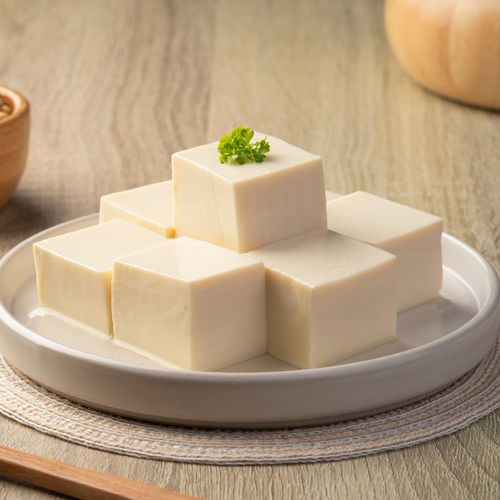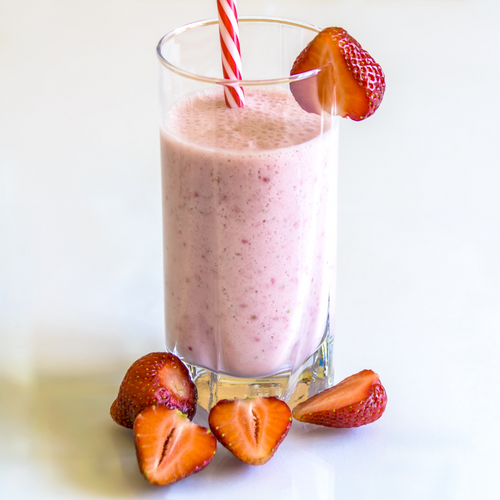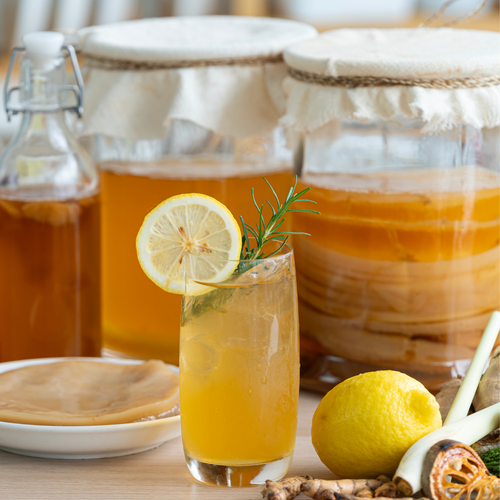Indeed, in France, 1 in 3 people are affected by a sleep disorder, so much so that the French sleep on average 1.5 hours less than 50 years ago. Difficulty falling asleep, waking up unexpectedly, insomnia... All these concerns which seem minor at first glance can turn out to be truly debilitating. Poor quality sleep leads to drops in energy during the day, a smaller volume of gray matter in adolescents, a drop in immunity to small everyday viruses (colds, etc.) as well as an increase in the risk of develop more serious pathologies (diabetes, obesity, cancer, cardiovascular diseases, etc.).
Fortunately, a few changes in lifestyle habits often resolve the problem. Among these little habits, we find nutrition, and even more: micronutrition. To regain control over your body, you have to regain control of what you put in it! We give you some tips to get there.
#1 – Compose your plate in accordance with your hormonal sleep-wake cycle
Said like that, it's scary. Yet it's quite simple. There are a few neurotransmitters, or hormones, that govern the sleep-wake cycle.
Among other things, dopamine is a hormone that promotes alertness, motivation, productivity and concentration. We will therefore rely on it to start the day: to encourage its production in the body, we increase our consumption of foods rich in tyrosine, its precursor. It is found in milk, eggs, meat, nuts, almonds, avocado, rye… It allows you to have energy throughout the day.
From the end of the afternoon, from snack time to dinner, it is preferable to promote the production of serotonin, a hormone which rhymes with rest and relaxation, but which above all generates the production of melatonin: the hormone of sleep ! This point is therefore very important. To produce serotonin, then melatonin, the ideal is tryptophan, the precursor of serotonin. As a snack, you can eat a banana, oilseeds, dark chocolate... These are all products rich in tryptophan! At dinner, favor poultry, fish, eggs, brown rice, legumes, dairy products... And don't forget to include a good dose of carbohydrates, because they promote the absorption of tryptophan.
Come on, we'll give you our ultimate secret: chia seeds are one of the foods richest in tryptophan, in addition to having a thousand benefits. As a topping, or in a pudding, we love it!
#2 – Eat a balanced diet overall
The production of these neurotransmitters is only possible in the presence of vitamins and minerals, and if the metabolism of carbohydrates, lipids and proteins takes place normally. We therefore pay particular attention to our diet as a whole!
Additionally, certain micronutrients also promote quality sleep. This is the case for vitamin B6, which is found a lot in garlic, cereals, nutritional yeast, certain fruits and vegetables, pistachios, nuts… Just like magnesium, well represented in green vegetables. , whole grains, legumes, oilseeds, chocolate, etc. These two micronutrients help make serotonin.
You can also choose your mineral water based on this factor! Micronutrients are often mentioned on the label.
#3 – Don’t dine too late
We wouldn’t want the digestion process to disturb your hard-earned sleep. So ideally, we recommend having your last meal 2 to 3 hours before going to bed.
#4 – Do without stimulating drinks after 4 p.m.
Drinking coffee and tea late in the day can disrupt your sleep. This is due to the caffeine/theine they contain: this substance blocks adenosine receptors, a signal sent to the body when a lot of energy has been used and it is time to rest. Studies agree that it is best to consume your last cup at least 6 hours before bed.
#5 – Replace them with herbal teas
We no longer praise the merits of plants. Some have anti-stress, soothing properties and promote sleep. So, when bedtime approaches you can gather around an infusion with valerian, passionflower, verbena, lemon balm, chamomile or even linden.
#6 – Avoid!
Finally, here are some habits to avoid in order to sleep well:
- protein overdose, because it's all a question of balance: by overloading your plate with protein, you increase the production of dopamine.
- the consumption of decaffeinated drinks, as these are not entirely caffeine-free.
- greasy, spicy food, or simply that it is difficult for you to digest, because difficult digestion can disrupt your sleep.
If you feel your digestion is pulling you before bed, you can always count on Easy Digestion , a concentrate of 5 plants which act directly on digestive comfort, to help you fall asleep peacefully!
Sources:
[1] Insert. 2017. Sleep ⋅ Inserm, Science for health . Available at: https://www.inserm.fr/dossier/sommeil/
[2] Drake C., Roehrs T., Shambroom J., Roth T. Effects of caffeine on sleep taken 0, 3 or 6 hours before going to bed . J Clin Sleep Med 2013;9(11):1195-1200.
[3] American Academy of Sleep Medicine. 2013. Late afternoon and early evening caffeine can disrupt sleep at night. https://www.eurekalert.org/news-releases/716109
[4] Doherty, R., Madigan, S., Warrington, G., & Ellis, J. (2019). Sleep and Nutrition Interactions: Implications for Athletes. Nutrients , 11 (4), 822. https://doi.org/10.3390/nu11040822
[5] Kałużna-Czaplińska, J., Gątarek, P., Chirumbolo, S., Chartrand, MS, & Bjørklund, G. (2019). How important is tryptophan in human health?. Critical reviews in food science and nutrition , 59 (1), 72–88. https://doi.org/10.1080/10408398.2017.1357534



















